by Lisa Cooke | Nov 25, 2016 | 01 What's New, Records & databases
Genealogical records and research for your Denmark ancestors has just gotten a little easier! New and updated genealogical collections for Danish genealogy have been added to FamilySearch. Also new this week, new and updated records for Sweden, Hungary, Britain, and Ireland.
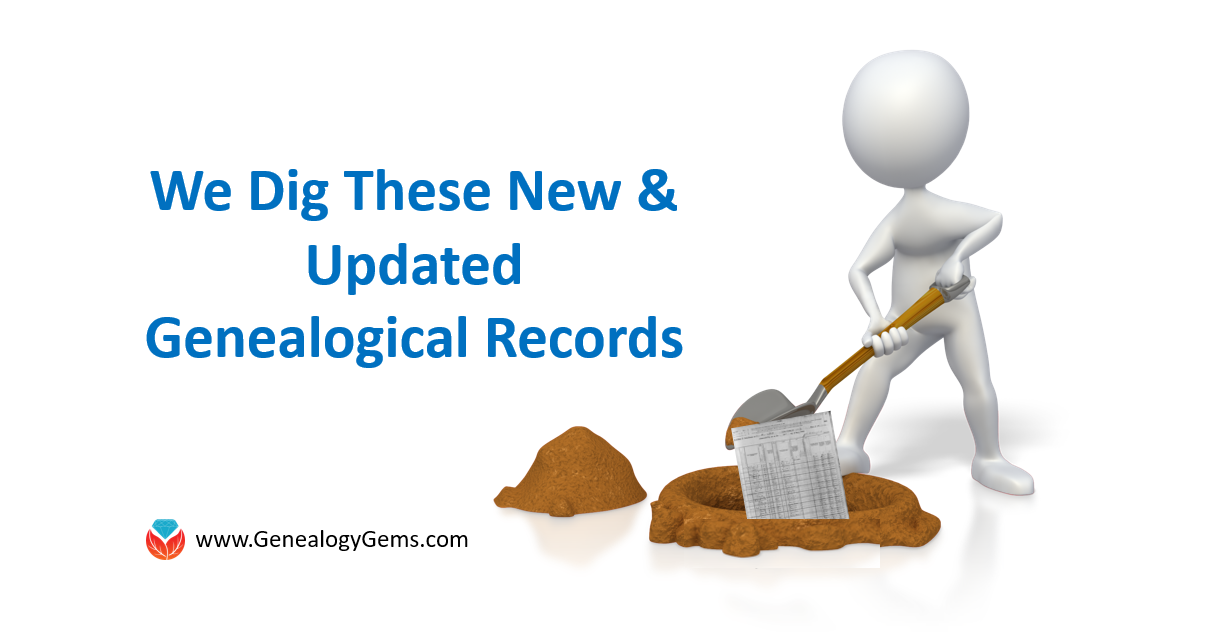
Denmark – Census
It was truly a Danish delight when we heard the 1916 Denmark Census is now available at FamilySearch. Danish genealogy is just a bit easier with the availability of this census, especially when paired with the already published 1911 Denmark Census, also at FamilySearch.
This is an every-name index to the 1916 census of Denmark. This index was created by MyHeritage from images provided by the National Archives of Denmark. The collection at FamilySearch includes an index or abstract version in English and a digital image of the original.

This census was taken for the countries of Denmark, the Faroe Islands, Greenland, and the Danish West Indies, however, only the records for Denmark are available at FamilySearch. The enumeration for Denmark was divided into three sections with a different form for each of the sections: Copenhagen city, other cities, and rural areas.
This census names each individual in the home and includes: sex, calculated birth date and year, marital status, relationship to head-of-household, and residence.
Other genealogy record collections for Denmark can be found on FamilySearch, too. See the entire list here.
Sweden – Church Records
FamilySearch has four Swedish church record collections that have recently been updated. Church records are especially helpful when civil records such as birth, marriage, and deaths, are not available. Check out these four updated collections and their titles below.
| Sweden, Västmanland Church Records, 1538-1901; index 1622-1860 |
43,976 |
|
| Sweden, Värmland Church Records, 1509-1925; index 1640-1860 |
Browse Images |
|
| Sweden, Skaraborg Church Records, 1612-1921; index 1625-1860 |
Browse Images |
|
| Sweden, Västerbotten Church Records, 1619-1896; index, 1688-1860 |
36,337 |
|
Hungary – Civil Registration
More records have been added to the Hungarian Civil Registration records at FamilySearch as well. This collection includes the years 1895-1980.
The records are bound volumes of pre-printed forms with event information recorded by hand. From 1895 through 1906, the forms are one page per event, but beginning in 1907 each event occupies one row in a printed table, so there are multiple events recorded per page. The records are in Hungarian.
Civil registrations include birth, marriage, and death records. You may be able to find the following information in each of these groups:
Birth records:
- Date and place of birth
- Name of child
- Gender and religion
- Parents’ names and mother’s age
- Parents’ religion
- Signature of informant
Marriage records:
- Date and place of marriage
- Groom’s name, date and place of birth
- Groom’s religion and occupation
- Groom’s parents’ names
- Bride’s name, date and place of birth
- Bride’s religion and occupation
- Bride’s parents’ names
- Witnesses’ names and their residence
- Additional remarks
Death records:
- Name and age of deceased
- Date, time, and place of death
- Deceased’s residence and occupation
- Deceased’s religion
- Spouse’s name
- Parents’ names
- Cause of death
- Signatures of informant
United Kingdom – 1939 Register
Like a census, the Register can tell you a lot about how your ancestors. You can find names, occupations, and more. The 1939 Register of more than 32.8 million records is now available at Findmypast.
The 1939 Register is pretty unique. It required people to explain exactly what they did. General terms, such as Foreman, Overseer, Doctor, Mill-hand, Porter or Farmer, were not acceptable. Instead, people were asked to be as specific as possible, giving details of the trade.
Additional information you will find on the Register includes:
- Name
- Full date of birth
- Address
- Marital status
- Occupation
Ireland – Directories
Also at Findmypast, the Ireland, 19th Century Directories allow you to search more than 120 volumes of directories that contain more than 74 thousand records. Listings may include your ancestor’s occupation, place of business, or home address.
These directories were published annually, which means that you can easily track your ancestor year to year.
You will want to be aware that most of the details in the directories were collected six months before publication; therefore, all the listings are six months old.
The records are presented as PDFs (portable digital files). This feature allows you to narrow your search by publication, year and page number. After selecting an image, you can read through the whole directory by using the previous and next buttons at the top of the image.
Learn more about Danish Genealogy
Read some great gems in our article Digitized Danish Records at MyHeritage!
Disclosure: This article contains affiliate links and Genealogy Gems will be compensated if you make a purchase after clicking on these links (at no additional cost to you). Thank you for supporting Genealogy Gems!
by Lisa Cooke | Apr 6, 2020 | 01 What's New, Legacy Tree Genealogists, Research Skills |
The Genealogical Proof Standard tells us that we need to conduct reasonably exhaustive research in order for our work to be credible. If you’ve ever wondered just what constitutes “reasonable” (and if your family tree is up to snuff) my guest author Kate Eakman, professional genealogist at Legacy Tree Genealogists, has answers.
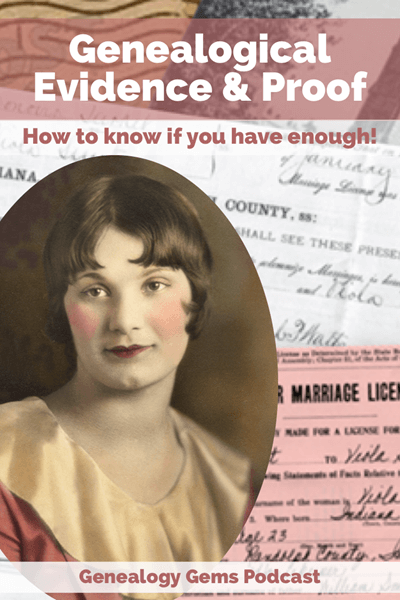
Professional Genealogist Kate Eakman explains evidence on the Genealogy Gems blog.
Genealogical Evidence: Have You Got What It Takes?
How do we know when we have compiled enough evidence to constitute proof?
Is a birth certificate or an autosomal DNA test result sufficient to declare this person is the child of that person?
Must we collect every record regarding an individual – the deeds, the tax lists, the newspaper clippings, the census reports – before we can declare a familial connection?
The Genealogical Proof Standard (GPS)
The Genealogy Proof Standard (GPS) directs us to perform reasonably exhaustive research, which requires that we identify and review all available records related to an individual.[1] This is being as thorough and accurate as possible and is a goal toward which we should all aspire in our genealogical research.
But, let’s be honest: most of us do not want to spend weeks or months (or even years) documenting one person before moving on to the next individual. We don’t want to know every detail of grandpa’s life before we turn to grandma.
We want to build a family tree which accurately provides us with the names of our ancestors so that we can identify our immigrant ancestor, or join a lineage society, or enjoy the satisfaction that comes from a balanced tree extending back a hundred years or more.
We want to be thorough and accurate, but we also want to make some progress. How do we balance the need for accuracy with the desire for results? How do we determine the necessary quality and quantity of evidence for our research?
Below are some guidelines to demonstrate how we can go about compiling the necessary information to say with confidence “this person is my ancestor.”
Genealogical Evidence Guidelines
1. One record/source is never enough.
Any one piece of data can say anything. A mother might lie on her child’s birth certificate for a number of reasons. A grieving spouse might not correctly recall the information for a husband or wife’s death certificate. There are typos and omissions and messy handwriting with which to contend. Even a lone DNA test is not sufficient evidence to prove a family connection.
We need multiple sources, and different kinds of sources, which corroborate the details of the others.

A single source is not enough. A marriage license does not guarantee that John and Griselda married. Photo courtesy https://newspapers.com.
A census report and autosomal DNA test results.
A deed and a will.
A birth certificate and an obituary.
Or, better still, a birth certificate, a census report, a deed, a will, an obituary, and autosomal DNA test results.
2. The more contemporary the source is to the person or event in question, the better.
Records of events made immediately after the event tend to be more accurate, and provide better details, than records created months or years later. As time passes, details become fuzzy, two events can be confused with each other, and our memories fade.
The passage of time between an event and the record of the event also allows for some revisionist history to creep in.
Here are some examples:
A birth year is adjusted to make someone appear older or younger in order to avoid the draft, enlist in the military, mask a dramatic age difference between spouses, or conceal an out-of-wedlock birth.
An obituary ignores the deceased’s first marriage because of some embarrassment associated with that marriage.
A census report enumerates everyone in the household as natives of Stepney, London, when they really were born in Stepney, and Hackney, and Whitechapel, which explains why the baptismal records can’t be found in Stepney.
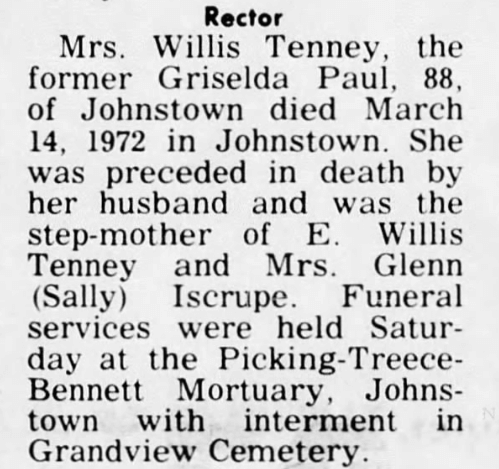
According to this obituary for Griselda, she was the widow of Willis Tenney, not John Wise. It appears Griselda and John did not marry after all. Photo courtesy https://newspapers.com.
According to this obituary for Griselda, she was the widow of Willis Tenney, not John Wise. It appears Griselda and John did not marry after all. Photo courtesy https://newspapers.com.
This is particularly true when it comes to autosomal DNA testing. My autosomal DNA is more useful for identifying my ancestors than is my son’s because I am one generation closer to those ancestors. This is the reason we encourage people to test the oldest members of their family first: their DNA has the potential to be the most useful simply because they are from an earlier generation (or two).
3. It is okay to make appropriate assumptions, but be careful!
In genealogical research we must sometimes make assumptions. When research theories are based on logical reasoning, it is perfectly acceptable to make those appropriate suppositions.
Determining which assumptions are appropriate can be simple: the two-year-old child enumerated in the home of a 90-year-old woman in the 1850 census can safely be eliminated as a biological child of that woman; the man born in 1745 could not have been buried in 1739; the person with whom I share 3150 cM of DNA is my sibling.
The challenge is to avoid making what seems like an appropriate assumption but is really based on faulty reasoning or bias. For instance, we presume that every child listed in a household in the 1860 U.S. Census is son or daughter of the two adults listed first. However, the household could include step-children, cousins, or individuals not even related to the family who were erroneously assigned the same surname.
Other inappropriate assumptions can include:
- the notion that a baby was born within a week of his baptismal date;
- a woman’s reported surname on her marriage certificate is her maiden name;
- there is only one person in any village, town, or city with the name of your ancestor;
- someone who shares 2000 cM of DNA with you must be your grandparent, aunt or uncle, niece or nephew, half sibling, or grandchild (they could be a ¾ sibling, the child of one of your parents and the sibling of the other parent).
4. All of the data from the various sources must correlate, and there can be no unresolved contradictions.
When the birth certificate says Richard was born in 1914, the 1938 newspaper article about his wedding reports Richard was 24 years old and the 1942 World War II Draft Registration card notes Richard’s date of birth occurred in 1914, we can confidently declare Richard was born in 1914.
If the wedding article declared the groom was 23 years old the contradiction could be explained by the time of year in which the wedding occurred – before or after Richard’s birthday.
But if his birth certificate reported a 1914 birth, and the newspaper article noted Richard was 32 years old, while the World War II Draft Registration listed his year of birth as 1920, we have some important contradictions. It is most likely the records are for three different men with the same name.
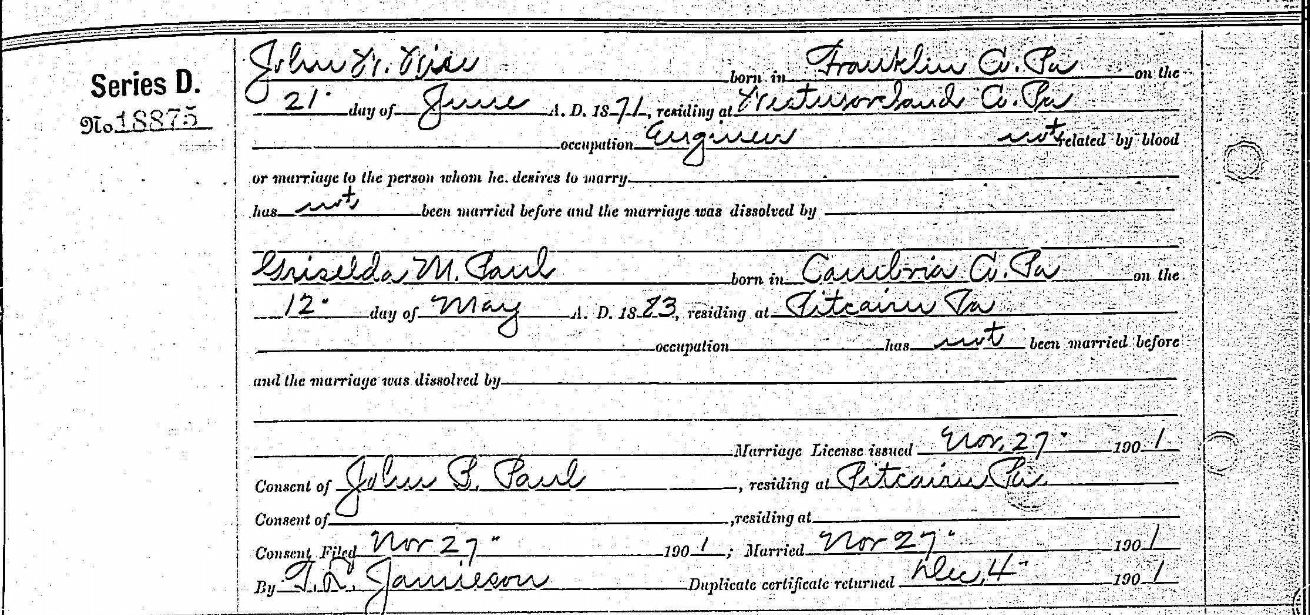
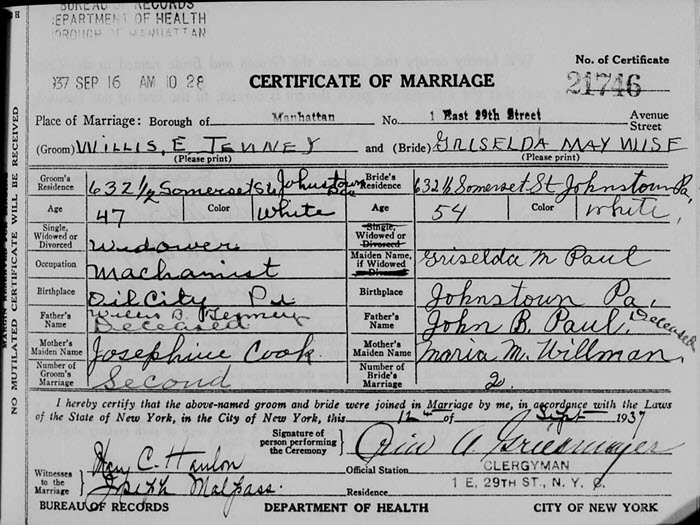
By collecting additional evidence, we finally learn that Griselda and John Wise did marry, and after his death Griselda married Willis Tenney. If we had collected only one of these four records we would not have had the most accurate information regarding Griselda Paul. Photos courtesy https://familysearch.org.
It’s important to remember that once we have accomplished that initial goal of building out our tree a few generations (or identifying our immigrant ancestor, or determining if we are related to that historical person) we can – and should – go back and collect other sources related to that person. This will result in uncovering a more complete story of their lives in the process.
As we can see from the four documents regarding Griselda Paul’s marriages, her story is much more than a simple list of birth, marriage, and death dates. As we identify, review, and analyze the other available sources, Griselda’s story will come alive with the facts and details we uncover.
A Fresh Set of Eyes on Your Genealogy Brick Wall
Sometimes the wrong evidence or assumptions can push us into a brick wall. A fresh set of expert eyes can help you identify the problem, and recommend the sources you need to pursue in order to compile trustworthy evidence.
If you are looking for some assistance in your genealogical research, Legacy Tree Genealogists can help. Our affordable ($100 USD) Genealogist-on-DemandTM Virtual Consultation service provides you with the opportunity for a 45 minute one-on-one discussion of your research with one of our expert genealogists. We can help guide you in evaluating evidence and determining research strategies to move forward with your research confidently.

About the Author: Kate Eckman
Legacy Tree guest blogger Kate Eakman grew up hearing Civil War stories at her father’s knee and fell in love with history and genealogy at an early age. With a master’s degree in history and over 20 years experience as a genealogist, Kate has worked her magic on hundreds of family trees and narratives.
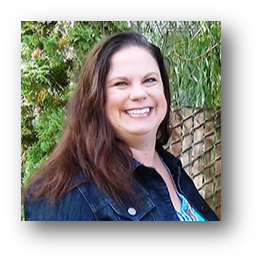
Professional Genealogists Kate Eakman
[1] “Genealogical Proof Standard (GPS),” Board for Certification of Genealogists, https://bcgcertification.org/ethics-standards, accessed March 2020.
by Lisa Cooke | Jun 6, 2016 | 01 What's New, Apps, Book Club, Mobile, Smartphones |
Wish someone could read your Kindle e-book to you? Your iPhone can. Here’s how to turn a Kindle ebook into an audiobook. For free.

Turn eBook into AudioBook
I love to read. But when I’m on the road, doing chores or working out, it’s easier to listen to books. Sometimes I purchase an audio format or find one at my local library. But audiobooks are pretty expensive, and they’re not always available for the books I want.
So what if I have an e-book already on my Kindle and I want my iPhone to read it to me? It can.
Here’s how to turn a Kindle ebook into an audiobook on an iPhone 5s:
1. Customize VoiceOver settings. On your iPhone, go to Settings > General > Accessibility.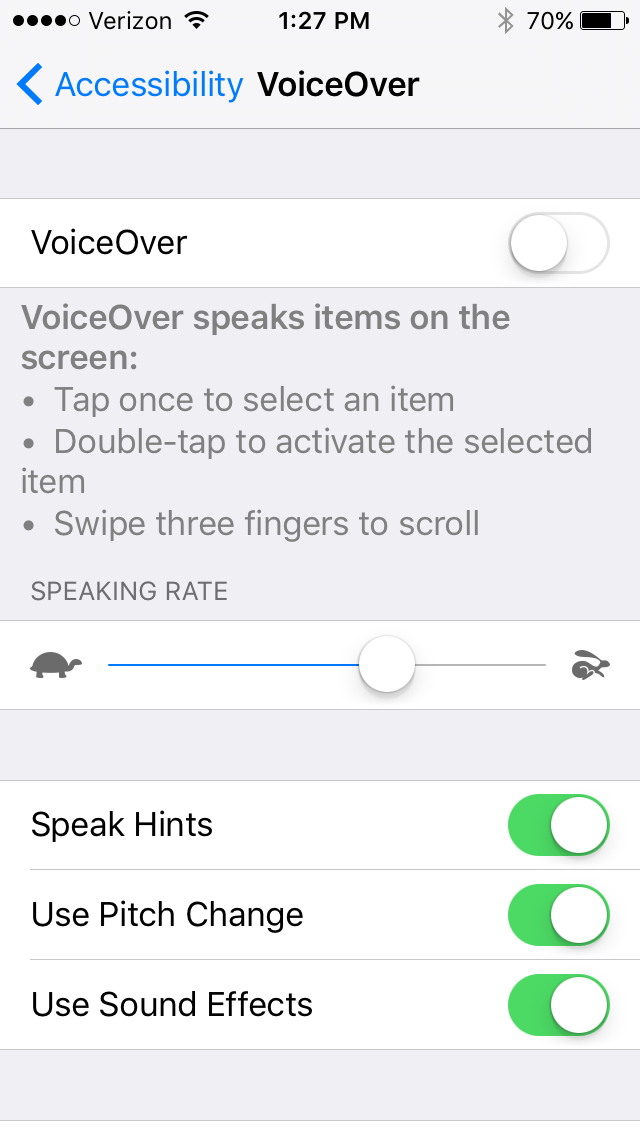
2. Set the reading speed. On the VoiceOver screen, go down to the Speaking Rate bar and adjust it to a speed you like: toward the turtle image for slower, and toward the running rabbit for faster.
3. Choose the reading voice. On the same screen, you can select the voice you want to hear. Choose Speech. Under Default Dialect, you can choose among several English-speaking reading voices, categorized under U.S., Australian, U.K., Irish and South African English. Or tap “Add New Language” to enable one of many other languages.
4. Open your Kindle app (or download it here).
5. Choose a book from your Library. Or go to Amazon.com, select Kindle Store under the All Departments dropdown menu on the search bar, and search for titles (or search “Kindle free books” for free Kindle books to read). You should also check with your local library about borrowing Kindle ebooks.)
6. Open the book. Tap the book and swipe left to page forward through the front matter until you want to start reading.
7. Ask Siri to “turn on VoiceOver.” You can also do this manually by going back to Settings > General > Accessibility. Once you turn on VoiceOver, it reads everything to you. I find it annoying and more difficult to navigate in the iPhone with VoiceOver on, so I don’t enable it until I am ready to use it. After Siri confirms that VoiceOver is enabled, press the Home button once to return to your Kindle book.
8. Start the audio reading. A black border will appear around your Kindle book page. A voice will start to give you instructions. Swipe down with two fingers to begin reading continuously (beginning with the current page and continuing through the book until you stop.
9. Double tap the screen to stop reading and bring up the menu options.
If you’re used to audiobooks read by actors and professional readers, you’ll miss their polished performances. But the voice works for me in a pinch, when I just want to listen to an e-book I already have on my Kindle.
Why not try this with the current Genealogy Gems Book Club featured title, The Summer Before the War by Helen Simonson? Click on the book title to order the Kindle e- book. It’s a perfect summer read: a light-hearted romance with colorful characters and a compelling historical backdrop at the outset of World War I.
book. It’s a perfect summer read: a light-hearted romance with colorful characters and a compelling historical backdrop at the outset of World War I.
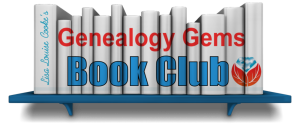 This post was brought to you by the free, no-commitment online Genealogy Gems Book Club. We choose titles for their appeal to family history lovers, AND we interview their (often best-selling) authors. Click here to learn more about the Genealogy Gems Book Club.
This post was brought to you by the free, no-commitment online Genealogy Gems Book Club. We choose titles for their appeal to family history lovers, AND we interview their (often best-selling) authors. Click here to learn more about the Genealogy Gems Book Club.












 book. It’s a perfect summer read: a light-hearted romance with colorful characters and a compelling historical backdrop at the outset of World War I.
book. It’s a perfect summer read: a light-hearted romance with colorful characters and a compelling historical backdrop at the outset of World War I. This post was brought to you by the free, no-commitment online
This post was brought to you by the free, no-commitment online